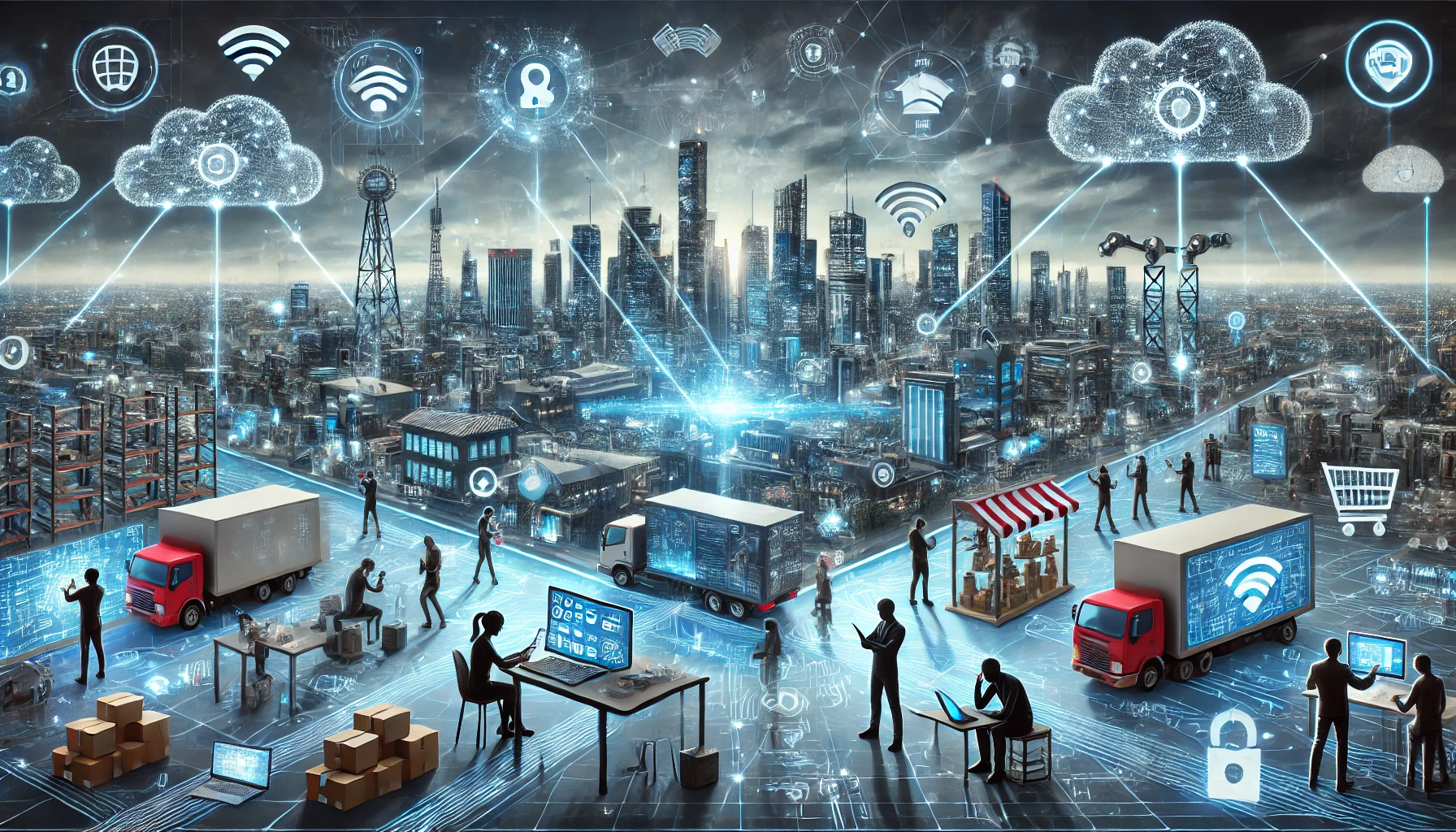Digital Economy is transforming how we live and work, encompassing all economic activities driven by digital technologies. This shift is accelerating, particularly in developing countries, reshaping business operations, and creating new opportunities and challenges. As the internet connects us more deeply, the move from traditional to digital methods is evident in every sector.
Why the Shift from Traditional to Digital?
Reflecting on my own experiences, I remember when online banking first became a thing. Initially, I was reluctant, preferring to visit my local bank in person. However, once I discovered the convenience of managing my finances from my computer and later my smartphone, I was hooked. This personal shift mirrors a broader trend: technological advancements like the internet and smartphones have revolutionized how businesses operate and interact with customers. These technologies make it easier for companies to tap into global markets and for consumers to access a vast range of products and services, driving the growth of the digital economy.
Online shopping has become a cornerstone of the digital economy, with giants like Amazon, Alibaba, Walmart, and eBay leading the charge. But it’s not just the global players; many regional platforms are flourishing as well. The ease and efficiency of online transactions have drawn millions of consumers, fueling further growth in the digital sector.
Data science and analytics play a crucial role in this evolution. Businesses now have the tools to better understand consumer behavior and make data-driven decisions. This approach enhances efficiency and allows companies to tailor their offerings more precisely to meet customer needs, bolstering the digital economy’s strength.
The growth of digital services such as cloud computing, streaming, and online education has also broadened the digital economy’s reach. These innovations are changing the way we work, learn, and entertain ourselves, contributing significantly to the sector’s expansion.
Challenges in the Digital Economy
Job displacement is a significant concern. For instance, when Amazon introduced robots in its warehouses, the efficiency gains were impressive, but they also resulted in fewer job opportunities for human workers. This issue extends beyond Amazon, affecting many industries as routine tasks become automated.
Another pressing issue is the digital divide. Not everyone has equal access to digital technologies. In many regions, such as parts of South Asia and Africa, reliable internet is still a luxury. Meanwhile, in Western countries, high-speed internet is commonplace, enabling people to work from home, take online courses, and enjoy various digital resources. This disparity highlights how the digital economy can exacerbate existing inequalities.
Privacy and security remain critical concerns in our digital world. We’ve seen high-profile data breaches at major companies like Facebook and Yahoo, exposing millions of people’s private information. As we increasingly rely on digital tools, the risks of data breaches and cyberattacks grow, making it essential to stay vigilant about online security.
Finally, while the digital economy presents immense opportunities, it also contributes to economic inequality. The benefits often concentrate among those with the right skills and resources. Tech-savvy entrepreneurs in urban areas are thriving, while those without access to technology or digital skills are left behind. This growing imbalance highlights the need for efforts to ensure that everyone can benefit from the digital economy’s advancements.
The Digital Economy is rapidly reshaping our world, bringing both remarkable opportunities and significant challenges. As online transactions, e-commerce, and digital services continue to evolve, addressing issues like job displacement, the digital divide, privacy concerns, and economic inequality is crucial. By promoting digital literacy, improving technology access, and enhancing security measures, we can work towards a more inclusive and equitable digital future.
Author: Md Aminul Islam, LinkedIn
Connect us

